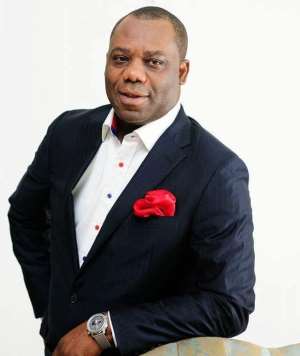
I perfectly agree with Ms. Philippa Larsen, the Acting President of the Ghana National Association of Teachers (GNAT), that the proposed licensing of new teachers as a criterion for entering into the employ of the Ghana Education Service (GES) would be irrelevant and, indeed, practically unsound and a waste of resources, unless progressive programs, such as regular in-service training, are established to ensure that teachers do not fall behind the most recent pedagogical bodies of knowledge necessary for the production of a caliber of pupils capable of holding their own against their classmates and peers around the globe (See “We’re Not Scared of Licensing Exams, But… GNAT to Gov’t” MyJoyOnline.com / Modernghana.com 8/18/17).
Indeed, in most advanced democracies, especially here in the West, for certified or licensed teachers to continue to hold onto their jobs, they are required to attend in-service training programs and professional conferences several times a year. For every conference or in-service training program attended, teachers get awarded a certain number of credits or points. There is a set minimum of points that every actively engaged teacher needs to attain every year, or find themselves put on probation with the possibility of losing their jobs or having their promotions delayed or denied, unless they promptly comply with upgrading themselves within a specified period of time.
Ms. Larsen tells us that for decades now, both the Ministry of Education (MOE) and the National Teachers’ Council (NTC) have flagrantly reneged on these institutional obligations. But even more egregious and troubling, according to the Acting President of GNAT, the teachers and their representatives were not consultedwhen the decision to have them licensed, henceforth, was taken. Now, what the operatives of the MOE and NTC need to do, before all else, is to establish these Professional Development Programs (PDP). These programs may come in the form of teachers’ attending monthlong vacation-time refresher courses at the University of Cape Coast or any one of the other universities or colleges of education scattered around the country.
Such training could also take the form of familiarizing both new and veteran teachers with technological tools for enhancing both teaching and learning skills. This is very necessary in the age of computer and Information Communication Technology (ICT). According to Ms. Larsen, the greatest problem facing the Ghanaian public schoolteacher is the woeful lack of teaching materials. Already, the Akufo-Addo Administration appears to be doing quite a remarkable bit in this area of public education. The government has begun distributing the most essential textbooks, free-of-charge, to students under the fee-free Senior High School program, which kicks into full-gear next month. But already, it is clear that the supply of free textbooks alone will not cut it, as it were. The classrooms and laboratories of our schools will also need to be fully equipped with Personal Computers (PCs) and Laptops.
President Akufo-Addo and Dr. Matthew Opoku-Prempeh, his Minister of Education, may also need to consider equipping every public or basic schoolteacher with a laptop. As well, classrooms will need to be equipped with Smart Boards, which are the pedagogical wave of the future. The preceding will not be easy to achieve in one fell swoop. But with the promise by the President to allocate a sizeable chunk of our oil revenue to education, a considerable lot can be achieved. I am also quite certain that an appeal for assistance from our so-called Western-donor partners would yield remarkable results. But here, also, the government needs to demonstrate its seriousness, especially in the area of fiscal frugality.
What this means is that the sector minister would have to establish a fiscal monitoring system aimed at drastically reducing spillage or waste, as well as corruption. Donor governments and organizations tend to be most attracted to fiscally disciplined and purposeful recipients.
*Visit my blog at: kwameokoampaahoofe.wordpress.com Ghanaffairs




 2024 election: Don’t be scared; we're ready to maintain law and order – Dampare ...
2024 election: Don’t be scared; we're ready to maintain law and order – Dampare ...
 NDC to officially outdoor Prof Jane Naana as 2024 running mate on April 24
NDC to officially outdoor Prof Jane Naana as 2024 running mate on April 24
 Power outages: Always give 3 days prior notice — PURC to ECG
Power outages: Always give 3 days prior notice — PURC to ECG
 NDC's quest to wrestle power from NPP goes beyond partisanship; it’s a national ...
NDC's quest to wrestle power from NPP goes beyond partisanship; it’s a national ...
 ECG board members slapped GHS5.8 million fine by PURC for failing to alert publi...
ECG board members slapped GHS5.8 million fine by PURC for failing to alert publi...
 I never left NPP, they 'sacked' me for attending Alan's programme; even a $100mi...
I never left NPP, they 'sacked' me for attending Alan's programme; even a $100mi...
 Fuel prices go up today
Fuel prices go up today
 Anti-gay bill: Your stance serves no purpose; either you actively advocate for t...
Anti-gay bill: Your stance serves no purpose; either you actively advocate for t...
 Tension brews as NPP Seattle clashes with national leadership over parallel chap...
Tension brews as NPP Seattle clashes with national leadership over parallel chap...
 Anti-gay bill: You've done nothing in Ghana to prove you're against LGBTQ+; ther...
Anti-gay bill: You've done nothing in Ghana to prove you're against LGBTQ+; ther...
